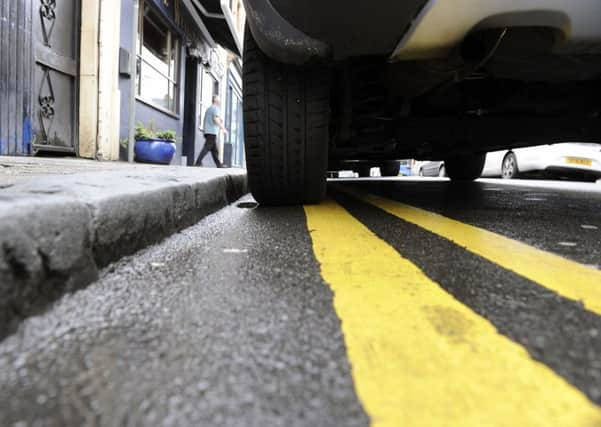John McLellan: A new front opens in Edinburgh's war on cars


A report to the transport and environment committee earlier this month could not have been clearer, stating its aim was to outline “the perceived benefits from introducing a Workplace Parking Levy” with no mention of potential downsides.
As ever kow-towing to the Greens, the SNP-Labour councillors agreed to include customer parking despite the obvious implication that charges at supermarkets effectively adds to the cost of the weekly shop and has the potential to increase on-street obstructions as people park elsewhere at times when restrictions don’t apply and wardens have packed up for the night or weekend.
Advertisement
Hide AdAdvertisement
Hide AdTo borrow another transport cliché, as far as shopping habits are concerned the train left the station decades ago and no amount of taxation will persuade people to swap the weekly shopping trip by car for a daily tootle to the greengrocer and butcher (ugh, you still eat meat . . .) with a wicker basket like their great-grandparents.
For a supposedly inclusive administration it’s astonishing they are prepared to countenance something which so obviously affects the least well-off the most, and making it less attractive to shop pushes more people towards fast food.
Add this to the idea of banning cars from main high street shopping thoroughfares altogether on Sundays and the trap would be complete.
Why should we accept Old Firm hate fest here?
With eyes firmly on the income, the SRU is pulling out the stops to persuade the Scottish Football Association to forsake Hampden for Murrayfield to stage its showpiece matches.
Advertisement
Hide AdAdvertisement
Hide AdThe happy-old Tartan Army is one thing, but with one voice Edinburgh should shout loud and clear it does not want Rangers v Celtic fixtures.
I write as a life-long Rangers follower, but I grew up next to Hampden and Old Firm clashes are horrible affairs which need a military operation the likes of which Edinburgh never sees. Only this month, two Slovenian fans were stabbed outside Ibrox.
Sure, Murrayfield can handle big occasions, but why should Edinburgh have to handle two 30,000-strong warring tribes descending on the city? We host the world’s greatest arts festival, not this festival of hate. As the Rev Ian Paisley might have said: Never, never, never.
Top marks for clean-up team
A chestnut tree bough fell and blocked the road and two bus routes on a blind bend near our house at the weekend, so my sons and I wrestled it on to the pavement and lopped off a few branches to clear the carriageway.
Advertisement
Hide AdAdvertisement
Hide AdThen a black, music-blaring BMW tore round the corner, its baseball-capped driver blissfully unaware that a minute earlier he’d have hit either the trunk or the traffic island, as have several others over the years. 20mph limit or 30, speed limits are just lamp-post decorations for some.
But full marks to the council team who cleared the pavement within an hour.
Below par decision
The golden rule of newspaper editing was not about editorial policy or design, but don’t mess with the crossword. You don’t have to be a psychologist to know if you change something someone has enjoyed for years there will be trouble, so, Edinburgh Leisure, what did you expect when you told predominantly retired Portobello golfers you were taking away a third of their course? And do you wonder why Edinburgh’s satisfaction rates for leisure services are comparatively low?
